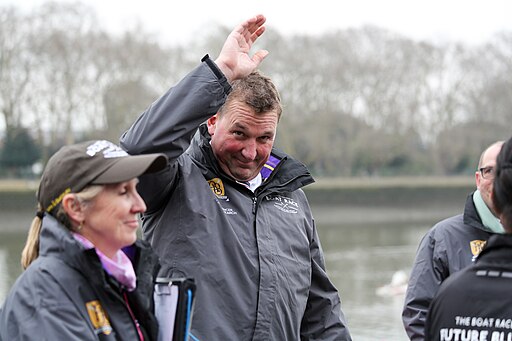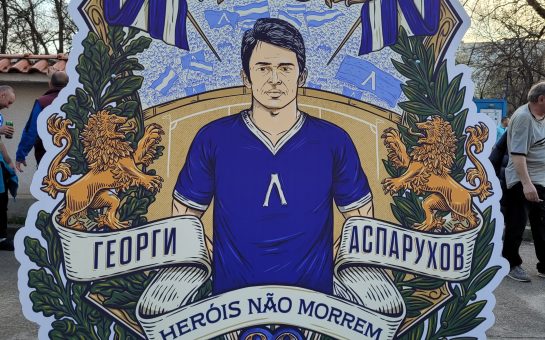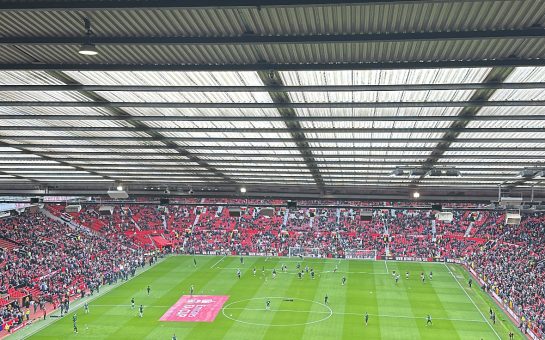Tomorrow is Armistice Day, and what better way to mark the occasion than England against Germany at Wembley Stadium tonight.
Both nations have booked their place in Russia, so tonight’s friendly will provide the opportunity for both Gareth Southgate and Joachim Löw to experiment with their squads.
There is certainly more important games to come for England and Germany, so don’t expect tonight to be one of the memorable occasions of the past.
Even if the two were facing off in the World Cup final, the game would have a lot to live up to. Here, MM takes a look at the history of this classic international fixture which is like no other – reviewing five past games between the nations who fought against each other in the World Wars.
5. Germany 4-1 England (2010 FIFA World Cup Round of 16 – 27th June 2010 – Freestate Stadium, Bloemfontein, South Africa)
Much was expected of England at the 2010 World Cup in South Africa, but after two draws in the group stage they finished runners-up to the United States. As a result, they faced a German side that had topped their group.
Going into the game, there was not much to separate the sides but the opening phases of the game were anything but even. Germany flew out of the blocks racing into a 2-0 lead with goals from Miroslav Klose and Lucasz Podolski after just over half an hour.
It was very much a one-sided affair until Matthew Upson pulled one back for England five minutes after Podolski had doubled Germany’s lead. But then came the talking point of the game, and perhaps the talking point of the whole World Cup…
Frank Lampard sensationally lobbed 6 ft 4 inch Manuel Neuer. The ball clearly crossed the line, but this wasn’t the view of Uruguayan referee Jorge Larrionda and his assistants. Known as the ‘ghost goal,’ Lampard’s strike was the moment that inspired goal-line technology which was in force at the last World Cup in Brazil.
Fabio Capello and co. were stunned, but England came out in the second half with the wind in their sails. Lampard was the centre of attention once again early in the second-half as the Chelsea midfielder struck the bar.
England’s good spell was short lived, though. Two devastating counter attacks from Germany midway through the half were finished off by Thomas Muller, who rounded off a convincing victory for Germany. Their young stars cut through England’s experienced group like a knife through butter.
4. England 1-1 Germany – Germany win 6-5 on penalties (UEFA Euro 1996 semi-final – 26th June 1996 – Wembley Stadium, London, England)
In the prelude to Euro ’96, English football fans were at their more passionate than ever.
“Thirty years of hurt, never stop me dreaming.” A line in the lyrics of the World Cup theme tune came true in June 1996 – England fans were dreaming of landing silverware after they had struck gold thirty year earlier.
Against the same opponent, England were buoyed by their twelfth man and the twelfth man played their part as England took the lead through talisman Alan Shearer inside two minutes.
The start to the game was frantic, and it was hell for Germany inside a cauldron of noise at the old Wembley. They soon settled, though.
Just 15 minutes into the game, the scores were level once again when Stefan Kuntz struck for Berti Vogts’ team.
The game then turned into a tense affair and the defences were very much on top for the next 105 minutes.
After 120 minutes, there was nothing to separate the sides – penalties beckoned.
England had overcome Spain on penalties in the previous round, but against Germany they weren’t as fortunate. Déjà vu of Italia ’90 occurred as Germany beat England on penalties to progress to the final.
Current England manager Southgate was the only player to miss the twelve penalties taken, the last of which was scored in emphatic style by German captain Andreas Möller.
Just as the Germans went on to win the 1990 World Cup in Italy after beating England on penalties in the semi-final; they done the same in Euro ’96. Germany beat neighbours Czech Republic 1-0, the same scoreline they beat Argentina in the World Cup final six years earlier.
3. Germany 1-5 England (2002 FIFA World Cup Qualifier – 1st September 2001 – Olympiastadion, Munich, Germany)
Prior to England’s sensational 5-1 win at in Munich, they hadn’t beaten Germany in a competitive game since the 1966 World Cup final.
Things would change in September 2001, as England put Germany to the sword in a crucial qualification match for the 2002 World Cup in South Korea and Japan.
The result looked unlikely when Bayern Munich star Carsten Jancker put Germany ahead inside five minutes.
The rest of the game was all about another star from the opposite team. Liverpool striker Michael Owen netted a stunning hat-trick which condemned Germany to their heaviest ever home defeat.
Owen’s three goals against Germany was perhaps the highlight of the best year of his career which seen him scoop up the FIFA Ballon d’Or award.
Fellow Liverpool stars Steven Gerrard and Emile Heskey were also on the scoresheet in Munich in the same year Liverpool won the League Cup, FA Cup and the UEFA Cup.
Going into the game, England were six points behind Germany and a victory for the hosts would see Deutschland progress automatically to the World Cup.
Following this result, however, the tables turned. England beat Albania in the next game, and picked up the point they needed against Greece on the final match day to secure their place at the 2002 World Cup.
Germany only managed a goalless draw against Finland in their last game, meaning they were forced through a two-legged qualifier against the Ukraine which they won to also reach the World Cup finals in 2002.
2. England 4-2 Germany – AET (1966 FIFA World Cup Final – 30th June 1966 – Wembley Stadium, London, England)
England and Germany locked horns in the biggest game in world football in 1966.
Germany had already won football’s biggest prize in 1954, when they beat Hungary’s all-stars 3-2 Switzerland.
England though had not yet competed in a final of a major tournament. This was until 1966, when they faced the old enemy.
In one of the most memorable and thrilling games in football history, England emerged victorious to win their first and only international trophy after a hat-trick from Geoff Hurst.
England were on the verge of victory, the hosts of the 1966 World Cup were 2-1 up in the final minutes of normal time, before Wolfgang Weber struck late on to force the game into extra-time.
In extra-time, it was all about Hurst. The West Ham United striker scored as two goals in extra-time to add to the goal he scored in normal time. His third goal came in the last minute of the enthralling contest, which prompted the famous commentary from BBC commentator Kenneth Wolstenholme: “They think it’s all over… it is now.”
Hurst received a knighthood in 1998 following his services to English football, but his manager Sir Alf Ramsey was knighted a year after England’s famous triumph over Germany – he will forever be remembered as England’s greatest ever manager who made the football dreams of a nation come true.
1. Christmas Truce of 1914 (Veterans football match – 25th December 1914 – ‘No man’s land’)
It would take something truly special to top the 1966 World Cup final between England and Germany, but this is a football match that would live long in the memory all over the world for as long as time goes on.
In the midst of the frightful First World War, British and German soldiers called a ceasefire and gathered together to take part in a football match against each other.
There were roughly 100,000 British and German troops involved in the ceasefire, following five months of brutal war between Germany and the Allies (Britain and France).
The English reportedly brought a ball from their trenches and brought it to ‘No man’s land’ where the football match took place.
“A football match… played between them [Germany] and us [Britain] in front of the trench,” The Times reported in January 1915.
Remarkably, in the context of one of the bloodiest events in history (World War One), football brought together troops of both sides. The beautiful game was truly at its most beautiful in December 1914.
There were a staggering 41 million casualties in World War One, which featured some of the deadliest battles in history. The Battles of Somme, Verdun and Passchendaele emphasised trench warfare at its most brutal.
On Christmas Day in 1914, however, all was put aside as the world’s greatest game offered an escape route for British and German soldiers in what will forever be one of the most memorable events in history.
Tonight’s game may be a friendly, but in reality there is no such thing as a friendly between England and Germany.
After all, arguably the most iconic football match of all-time was a ‘friendly.



